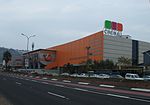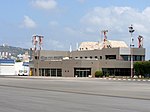Haifa Oil Refinery massacre

The Haifa Oil Refinery massacre took place on 30 December 1947 in Mandatory Palestine. It began when six Arabs were killed and 42 wounded after members of the Zionist paramilitary organisation, the Irgun, threw a number of grenades at a crowd of about 100 Arab day-labourers. These Arab day-labourers had gathered outside the main gate of the then British-owned Haifa Oil Refinery to look for work. Minutes after this Irgun attack, Arab refinery workers and others began attacking the Jewish refinery workers, resulting in 39 deaths and 49 injuries, before the British army and Palestine Police units arrived to put an end to the violence. This came to be known as the "Haifa Oil Refinery massacre". Haganah later retaliated by attacking two nearby Arab villages in what became known as the Balad al-Shaykh massacre, where between 21 and 70 Arabs were killed, while skirmishes followed in Haifa.
Excerpt from the Wikipedia article Haifa Oil Refinery massacre (License: CC BY-SA 3.0, Authors, Images).Haifa Oil Refinery massacre
HaHistadrut Avenue, Haifa Check Post
Geographical coordinates (GPS) Address Nearby Places Show on map
Geographical coordinates (GPS)
| Latitude | Longitude |
|---|---|
| N 32.7934 ° | E 35.0519 ° |
Address
לבניות
HaHistadrut Avenue
3688520 Haifa, Check Post
Haifa District, Israel
Open on Google Maps









